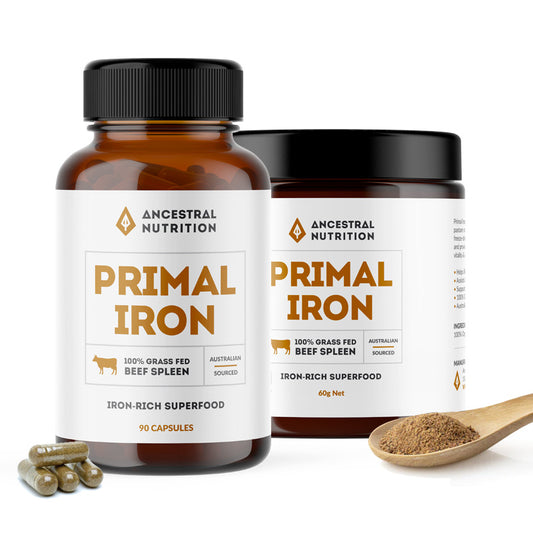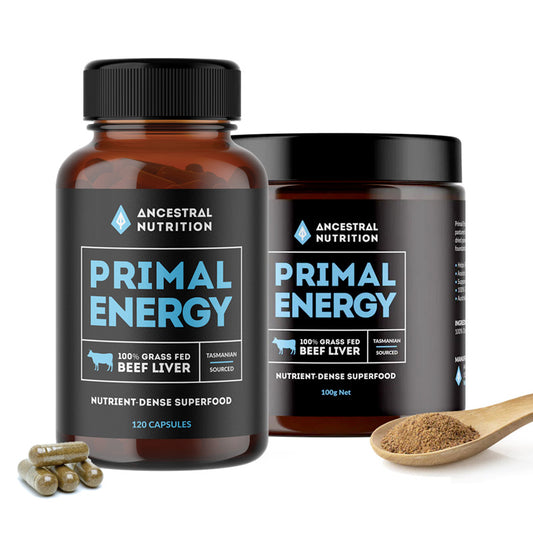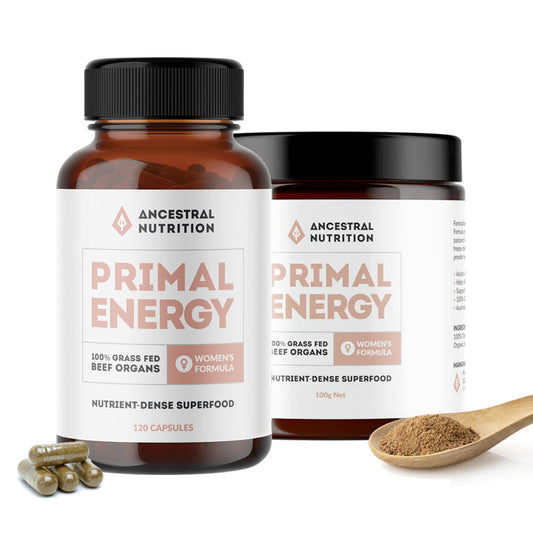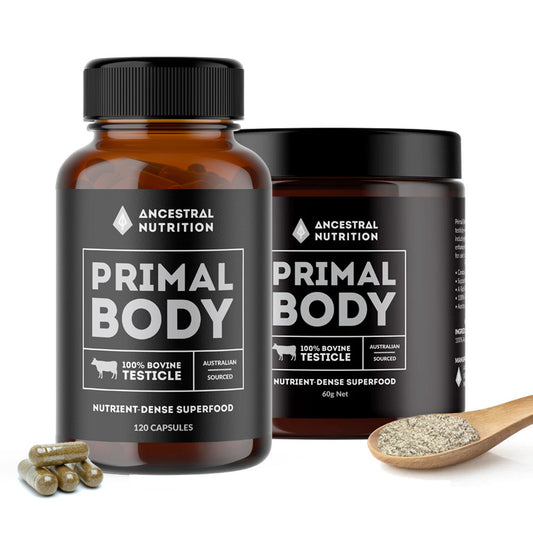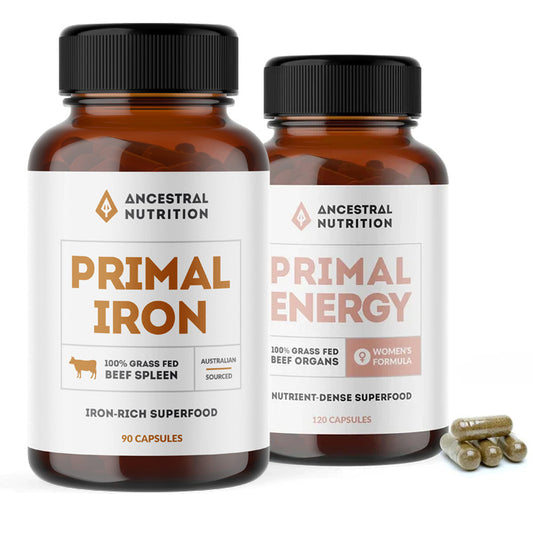Folate vs Folic Acid: Everything You Need To Know
article by Ancestral Nutrition
Understanding the difference between food-based folate and synthetic folic acid
What Is Folate?
Folate, also known as vitamin B9, is a water-soluble B vitamin naturally found in a variety of foods. These include animal products like liver, eggs, fish, and dairy, as well as vegetables, legumes, fruits, nuts, seeds, and some fortified foods.
Folate supports several key processes in the body, including:
- Healthy red blood cell formation
- DNA synthesis
- Energy metabolism
- Nervous system function
- Nutritional support during pregnancy
- How Much Do You Need?
The recommended dietary intake (RDI) for folate varies based on life stage:
- Adults (19+ years): 400 mcg/day
- Pregnancy: 600 mcg/day
- Lactation: 500 mcg/day
- Regular alcohol consumption: Higher needs may apply – speak to your healthcare provider
What Is Folic Acid?
Folic acid is the synthetic form of vitamin B9, commonly used in supplements and food fortification. It differs from natural folate in structure and how it's processed by the body.
Producing folic acid involves the conversion of food-based folates into a stable compound for shelf life and fortification purposes. It is added to many grain products and used in standalone supplements.
The MTHFR Gene and Folate Metabolism
Some individuals carry a common genetic variant in the MTHFR gene, which can affect how folic acid is processed in the body. This may influence how efficiently folic acid is converted into the active form of folate used in biological processes.
For this reason, some people choose to focus on natural food-based folate rather than relying solely on folic acid from supplements or fortified foods. If you’re curious about your folate needs or gene variants, a qualified health practitioner can provide personalised guidance.
Folate and Pregnancy
Folate plays a vital nutritional role during pregnancy. Adequate intake supports healthy cell development and overall maternal wellbeing. In many countries, folic acid is added to bread and grains to help support public health outcomes.
Because individual needs vary — especially when pregnancy is involved — it’s best to seek tailored nutritional advice from your doctor or dietitian.
Key Food Sources of Folate
Natural folate is found in both animal and plant-based foods. Some of the most concentrated sources include:
- Beef liver and chicken liver
- Dark leafy greens like spinach and kale
- Eggs and legumes
- Asparagus, citrus fruits, and avocado
Including a variety of these foods in your diet can help support your daily folate needs.
In Summary
- Folate is the natural form of vitamin B9 found in whole foods.
- Folic acid is a synthetic form often used in supplements and fortified foods.
- Some individuals may benefit from prioritising food-based sources of folate, especially when considering genetics or personal preferences.
As always, it’s important to work with a healthcare provider to assess your individual nutritional needs, especially during pregnancy or if you have specific health concerns.
This article is for general information only and does not constitute medical advice. Individual nutrient needs can vary. Please consult a qualified healthcare professional before making changes to your diet or supplement routine, especially during pregnancy or if you have known genetic or health conditions.

